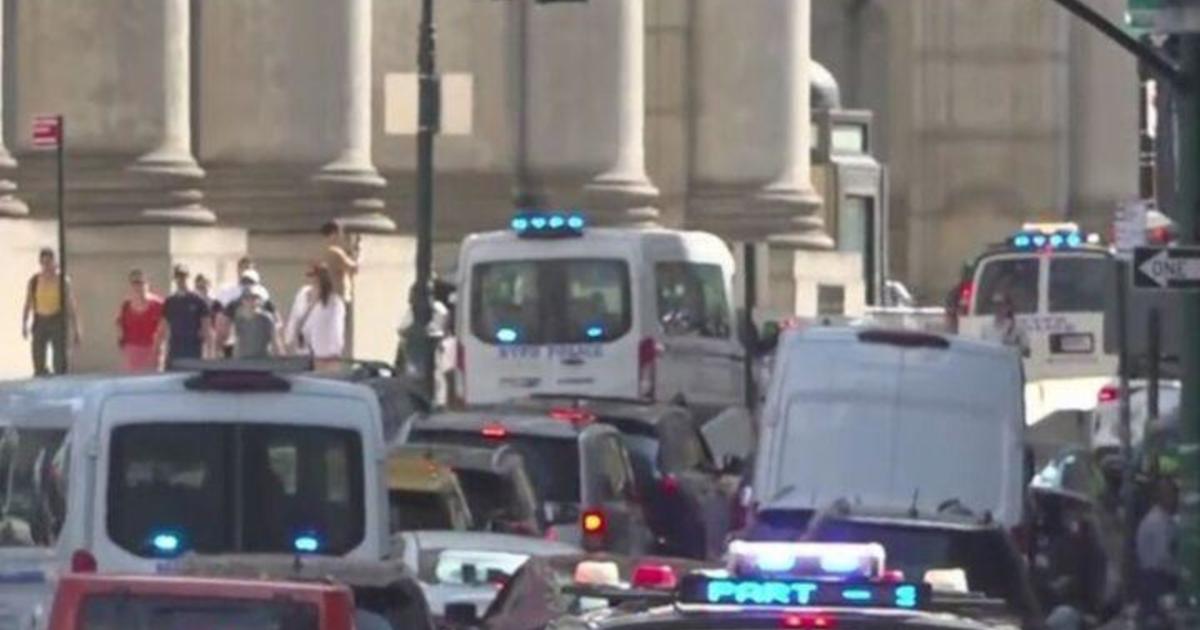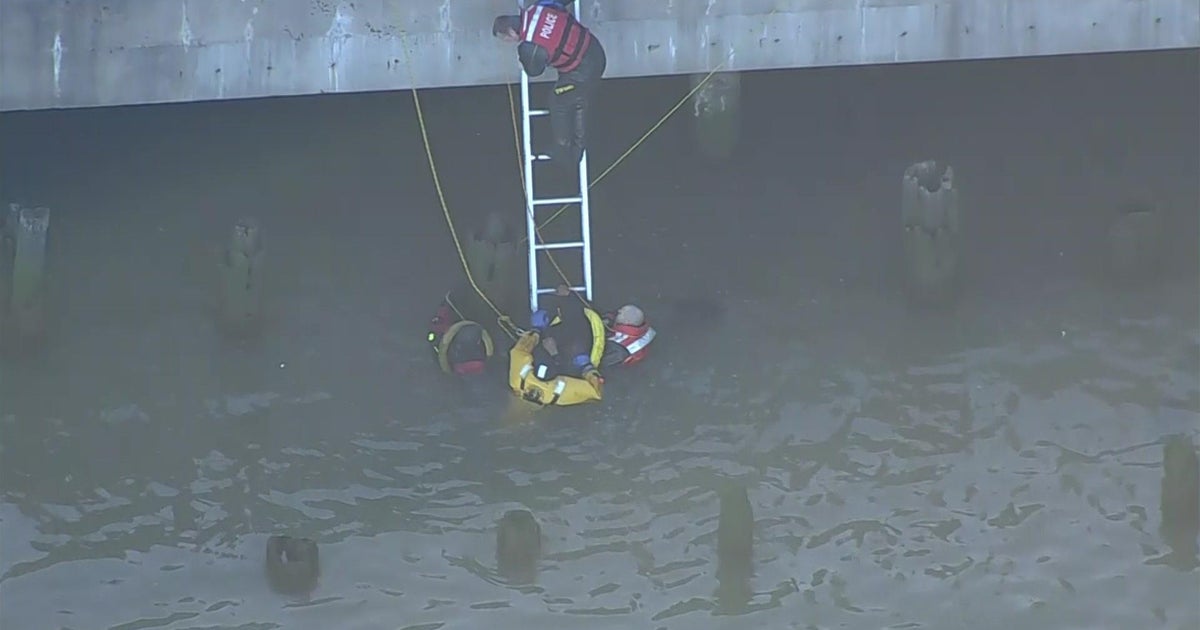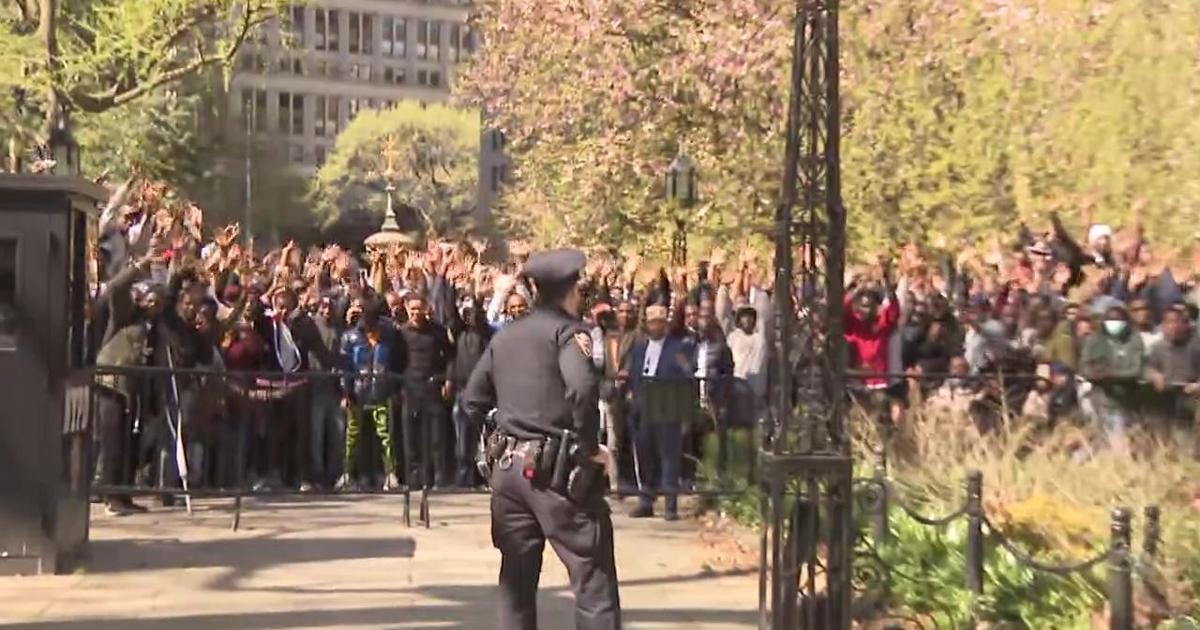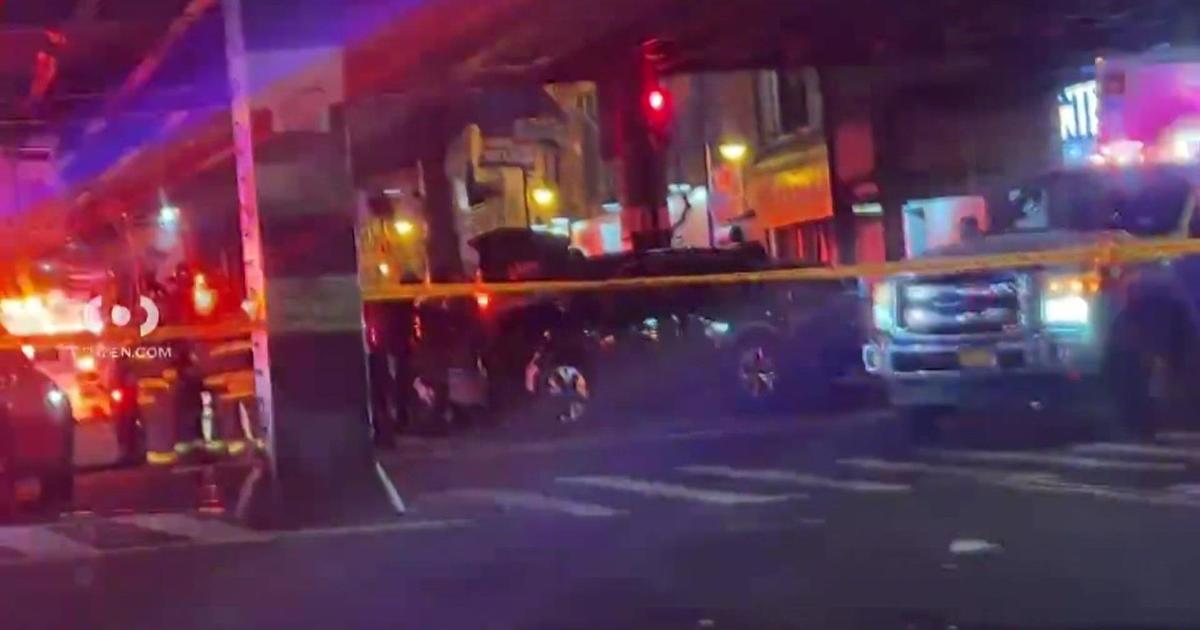Report: Yale Research Students To Voluntarily Sequester Themselves Following Trip From Liberia
NEW HAVEN, Conn. (CBSNewYork/AP) -- Two Yale University doctoral students returning from West Africa are taking extra precautions to ensure that they did not contract the Ebola virus while traveling.
The students have been in Liberia, one of the three countries hit hardest in the Ebola epidemic, along with Sierra Leone and Guinea.
Ebola is believed to have sickened more than 7,100 people in West Africa and killed more than 3,300, according to the World Health Organization.
The students left for Liberia on Sept. 16, the same day the university advised against travel to the region, WCBS 880's Fran Schneidau reported. The two did travel with Yale's permission.
According to a report in the Yale Daily News, the students were in Libera to help set up a computer system to monitor the outbreak for the Liberian Ministry of Health.
Web Extra: More Information About Ebola From The CDC
In an email to students, faculty and staff, Yale School of Public Health Dean Paul Cleary said the students had no direct contact with Ebola patients and are not exhibiting symptoms of the virus, according to the report.
Report: Yale Research Students To Voluntarily Sequester Themselves Following Trip From Liberia
Cleary said, understandably, there is concern from students, faculty and staff, but emphasized appropriate protocols are being followed, Schneidau reported.
The students have been in regular contact with Yale Health and have agreed to voluntarily sequester themselves for three weeks once they return to campus.
Ebola symptoms can include fever, muscle pain, vomiting and bleeding and can appear as long as 21 days after exposure to the virus. The disease is not contagious until symptoms begin. It spreads only by close contact with an infected person's bodily fluids.
Gov. Dannel Malloy said Thursday that while the risk of an Ebola outbreak in the U.S. is "very low," the state Department of Public Health has requested Connecticut hospitals to complete detailed checklists that asks them to ensure they can detect patients with the disease and protect health care workers so they can safely treat a patient.
"CDC Director Dr. Tom Frieden reassured the public that by upholding strong health care infection control measures and public health practices, the U.S. can 'stop Ebola in its tracks,'" Malloy said in a news release. "Our state health department has been working and communicating with federal and state partners to ensure those strong measures and practices are in place here in Connecticut."
In New York, some airline workers are taking precautions to protect themselves against viruses like Ebola.
As WCBS 880's Monica Miller reported, hundreds of union workers are invited to attend a 90-minute training session next Thursday on how to protect themselves against viruses like Ebola.
"If they use the proper equipment, if they use gloves, they can minimize the likelihood of contamination," 32BJ Service Employees International Union President Hector Figueroa said.
Figueroa also said he hopes to schedule more training sessions in the future.
Training Seminar To Teach Airline Workers How To Protect Against Viruses
On Tuesday, the Centers for Disease Control and Prevention announced that a man, who traveled from Liberia to Dallas to visit relatives, has become the first person diagnosed with Ebola in the United States.
Health officials in Texas said they have reached out to about 80 people who may have had direct or indirect contact with the man or someone close to him.
None of the people are showing symptoms, but health authorities have educated them about Ebola and told them to notify medical workers if they feel ill.
Four American aid workers who became infected in West Africa have been flown back to the U.S. for treatment after they became sick. Three have recovered.
As CBS 2's Marlie Hall reported, a cameraman working for NBC news in Liberia has also been diagnosed with the virus.
Ashoka Mukpo's mother lives in Rhode Island, she said that her son is weak, but still walking.
"Of course he's very, very frightened, but he's also, his spirits are relatively good, the more we've been able to reassure him," Diane Mukpo said.
Mukpo's family said that a private jet will fly their son to Nebraska on Sunday.
New Yorkers with family in Liberia have been struggling with how to help family in the middle of the Ebola outbreak.
"I'm sitting alone here wondering what can I do," Amanda Spens told CBS 2's Andrea Grymes.
Spens lives in an area known as Little Liberia, in the Clifton section of Staten Island. A world away her husband Michal and adopted kids are fighting to stay healthy while friends and family die around them.
The disease has killed about 2,000 people in Spens' native country so far according to the CDC, and in neighboring Sierra Leone, more than 600.
Check Out These Other Stories From CBSNewYork.com:
(TM and © Copyright 2014 CBS Radio Inc. and its relevant subsidiaries. CBS RADIO and EYE Logo TM and Copyright 2014 CBS Broadcasting Inc. Used under license. All Rights Reserved. This material may not be published, broadcast, rewritten, or redistributed. The Associated Press contributed to this report.)



